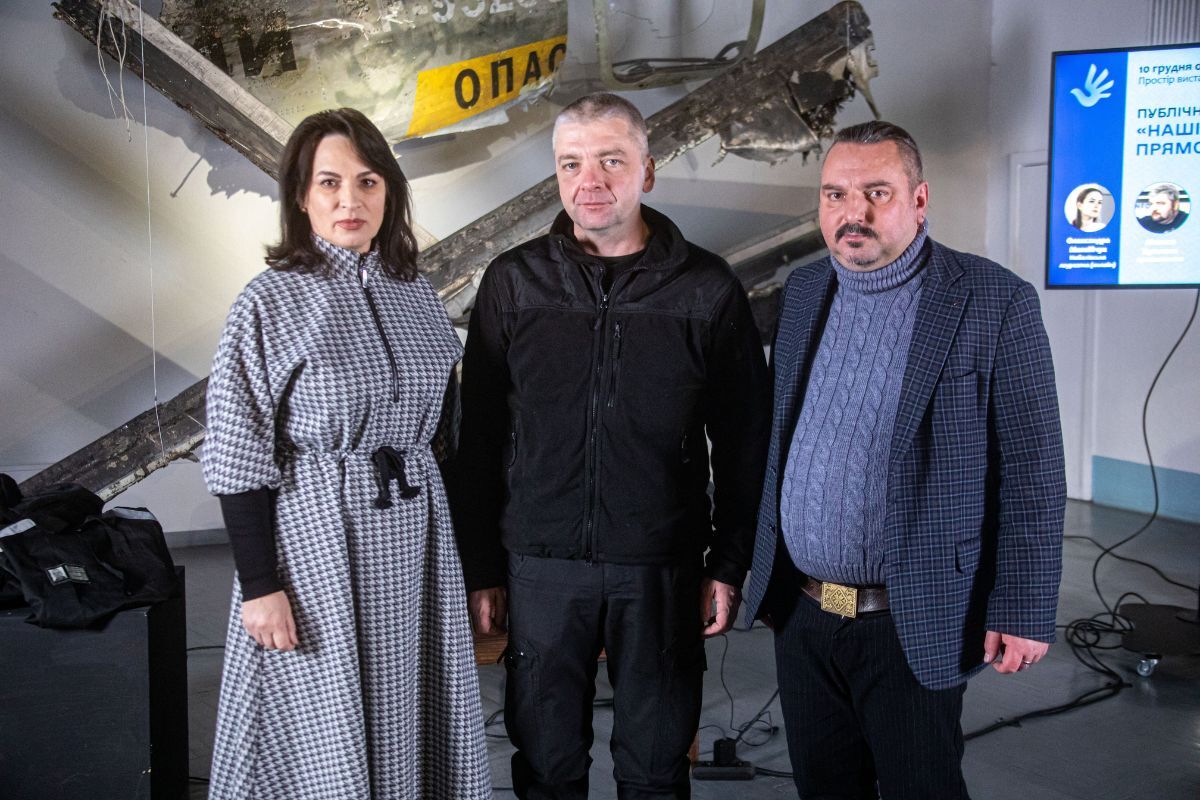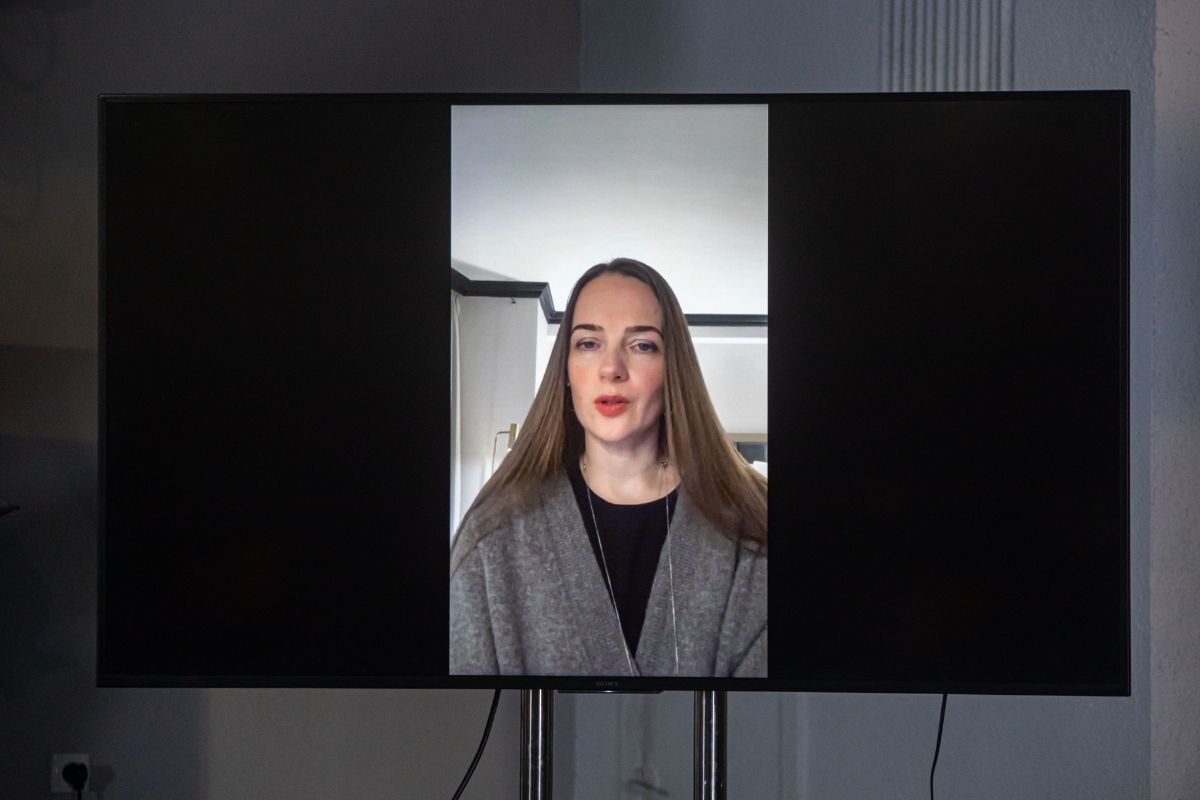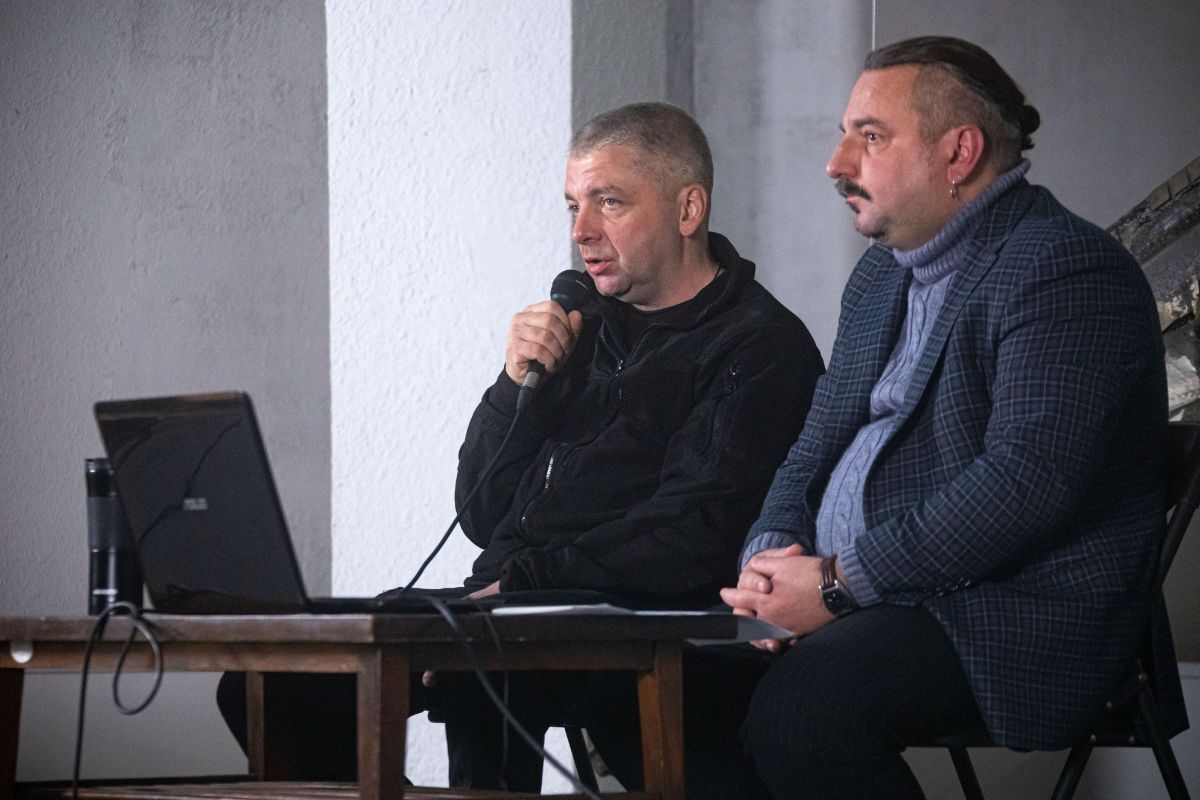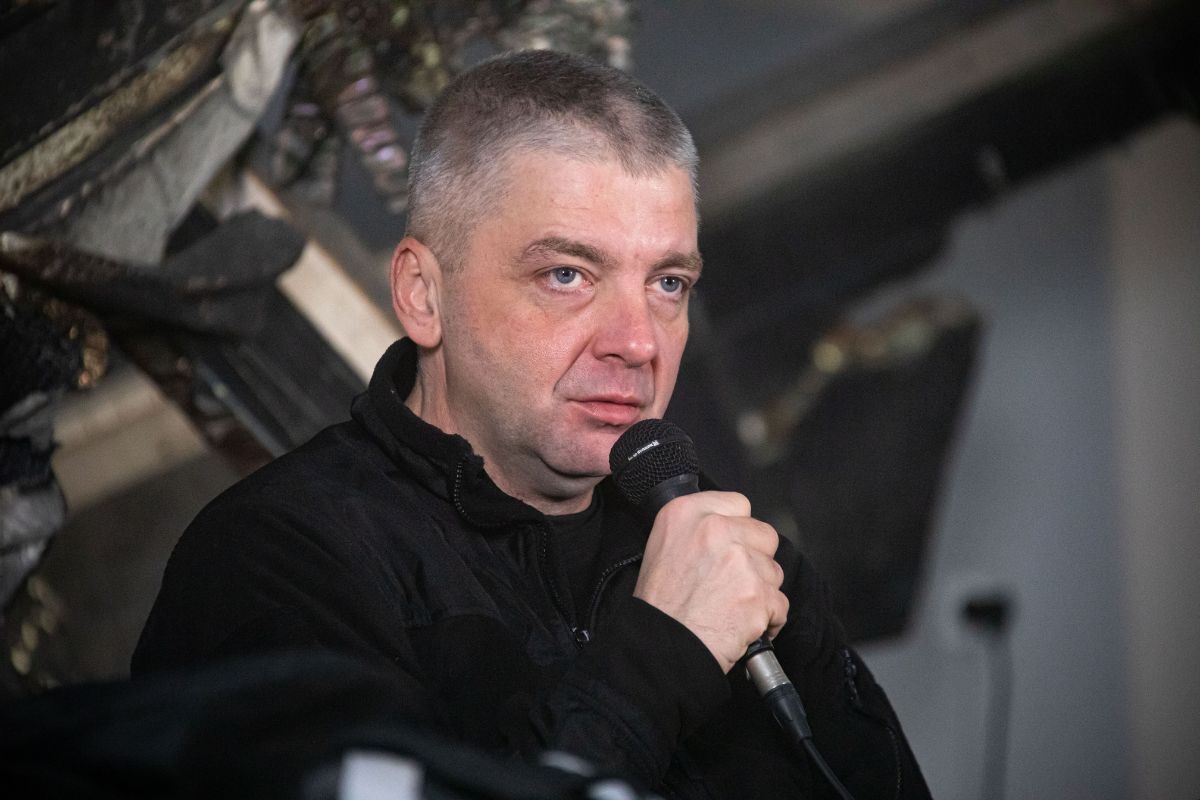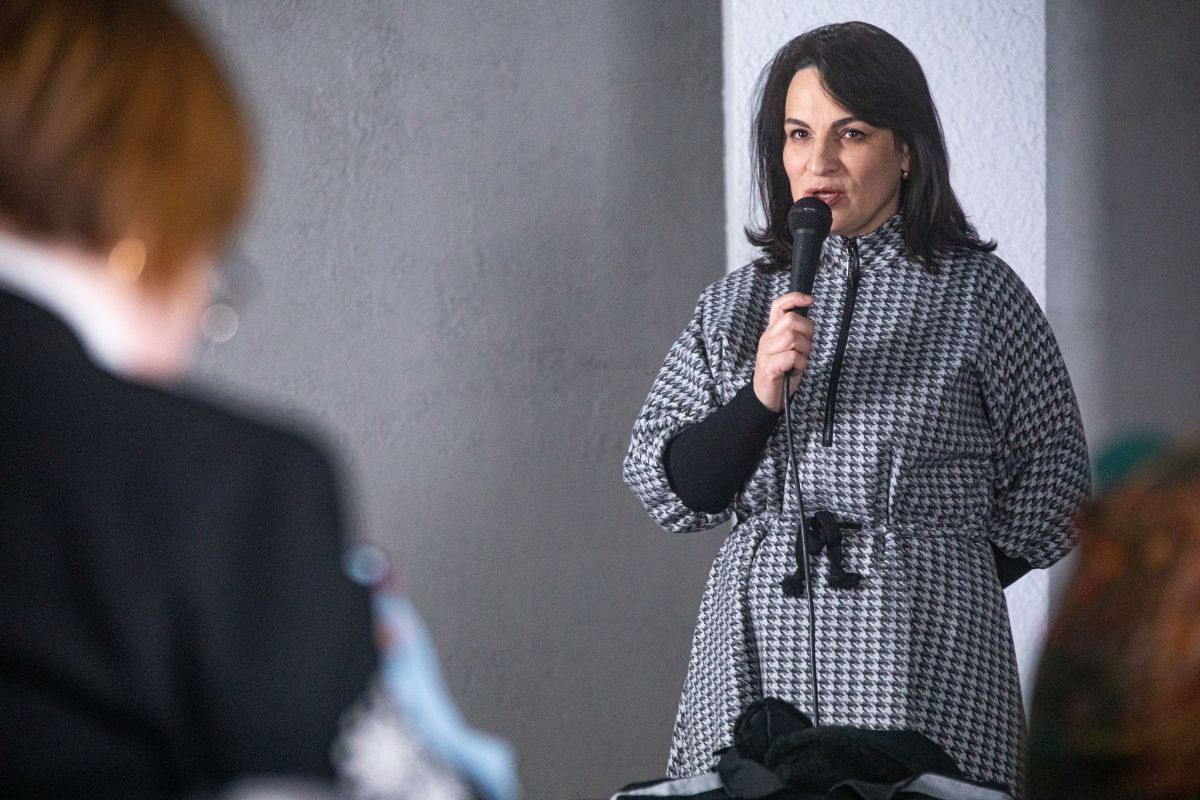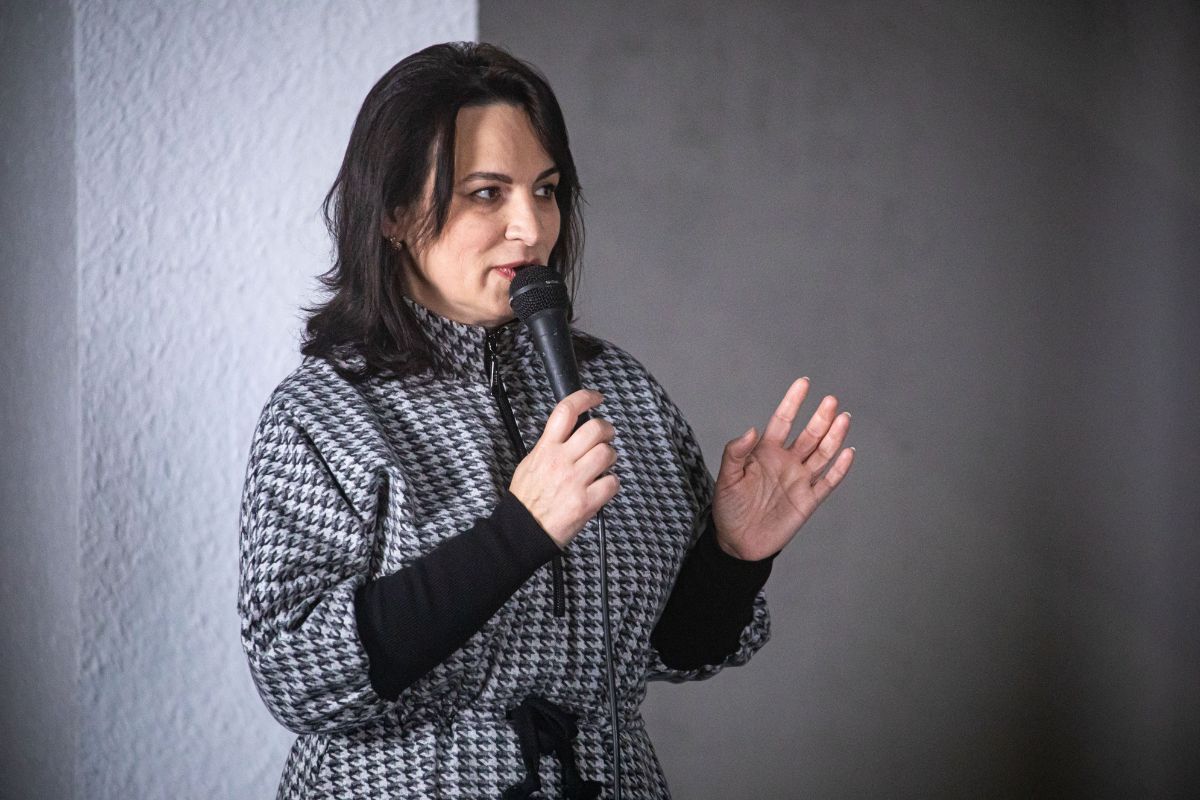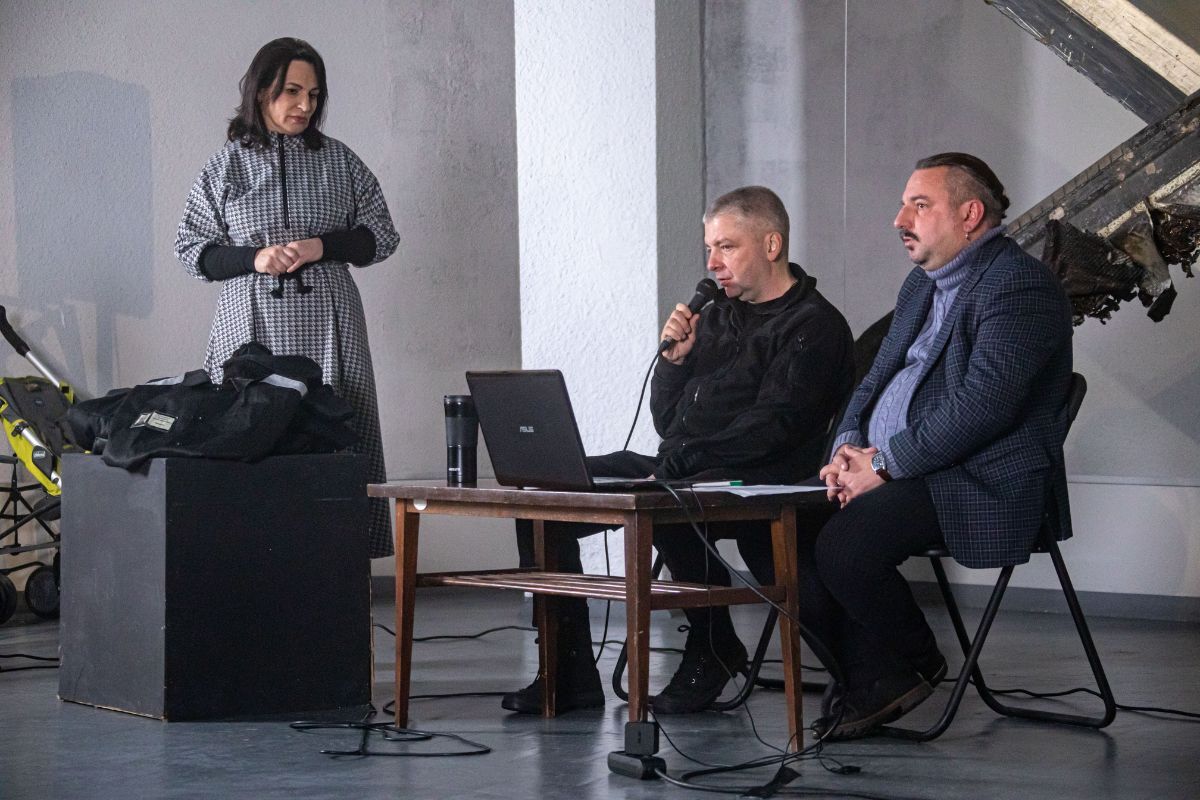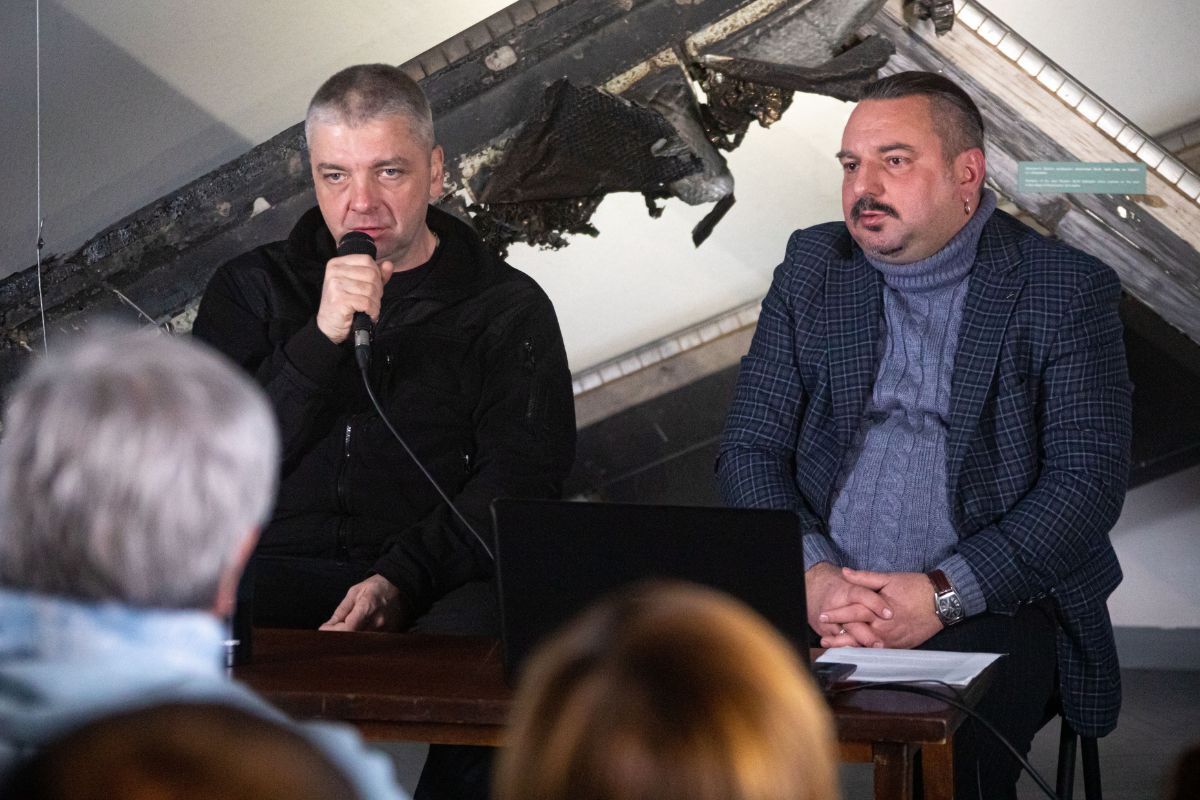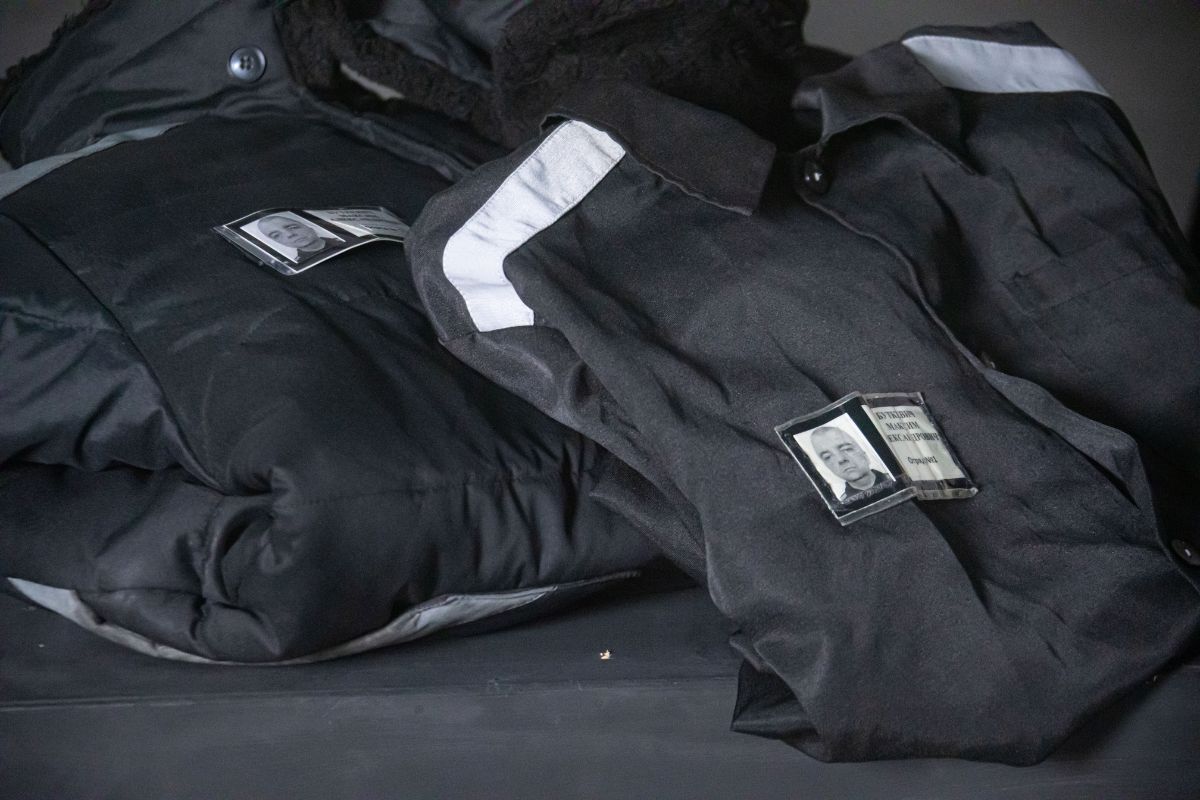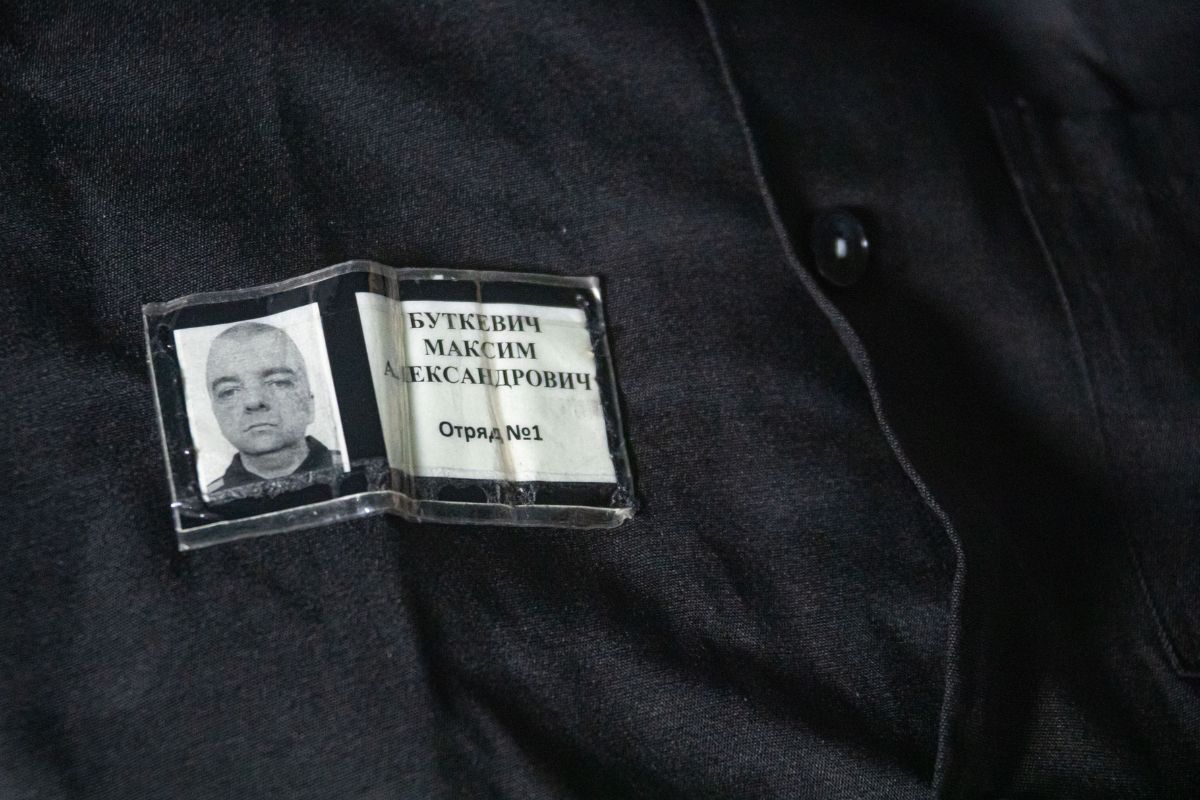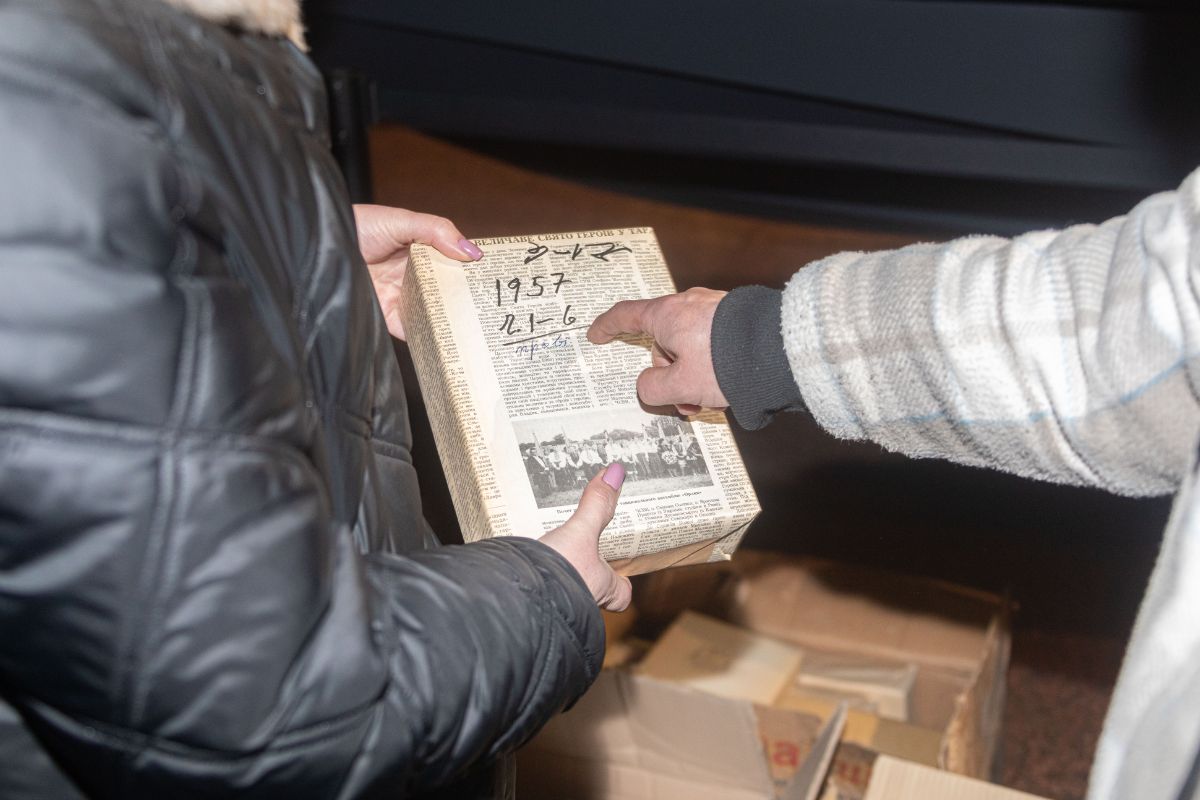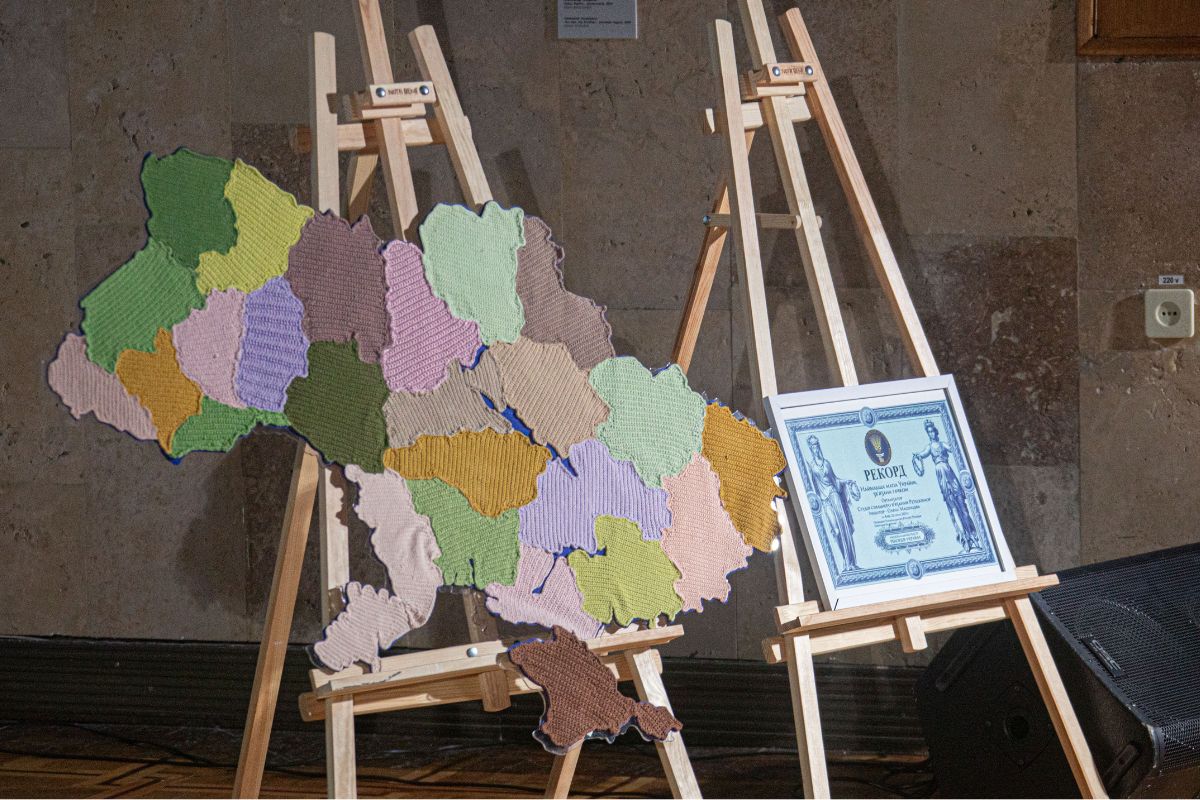On December 10, a public discussion on Human Rights Day “Our Rights, Our Future, Right Now” was held in the exhibition space “Ukraine – Crucifixion” at the War Museum.
The focus of the discussion was the problem of prisoners of war and their families.
Oleksandra Matviichuk, head of the public human rights organization “Center for Civil Liberties”, awarded the Nobel Peace Prize in 2022, addressed the participants of the online discussion.
The conversation also invited former prisoner of the Kremlin, released from Russian captivity on October 18, 2024, human rights activist and journalist Maksym Butkevych.
A representative of the Armed Forces of Ukraine, a specialist in the reintegration of released prisoners, also joined the conversation. He spoke about the peculiarities of the process of restoring the psychological and moral state of former prisoners, as well as their environment.
Iryna Kotsabiuk, head of the scientific and exposition department of the modern Russian-Ukrainian war, demonstrated artifacts that were transferred to the War Museum’s fund collection by a group of specialists on the reintegration of former prisoners of war: fragments of documents about the prisoner’s identity, manuscripts of the lyrics of Russian and Soviet propaganda songs that Russians forced to memorize and perform, as well as belongings in which Maksym Butkevych returned to his native land.
The discussion featured excerpts from the documentary film “Witnesses. Captivity That Kills”, created by the “War Archive” project team. In this film, former prisoners of war from the 12th Special Operations Brigade “Azov” talk about Their own experience of being in captivity in the Russian Federation, including the crime of bombing in Olenivka. The film also raises the topic of the helplessness of international structures regarding the crimes of the Russian Federation.
Finally, Maksym Butkevych shared his understanding of the concept of "freedom".
According to the Coordination Headquarters for the Treatment of Prisoners of War, more than 8000 people are currently in Russian captivity, of which more than 1600 are civilians. The Russians do not adhere to any international conventions and systematically violate people’s personal rights. The museum discussion once again emphasized that we must tell the truth and remember our people who are in Russian captivity.
